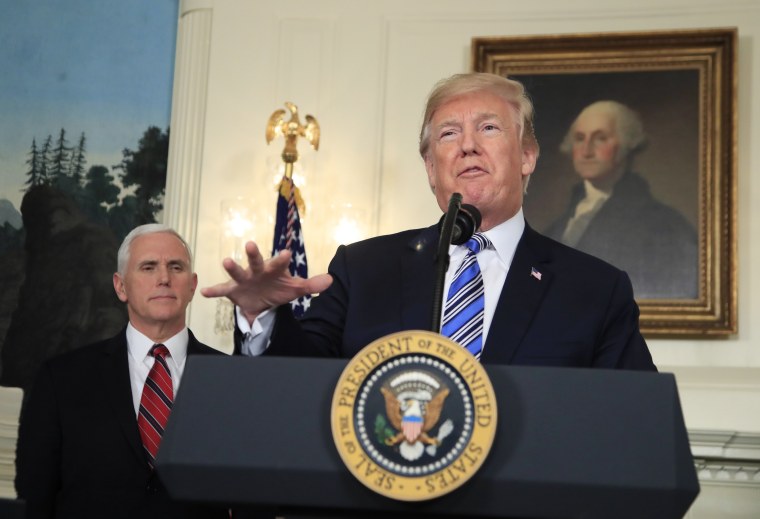About a week ago, White House officials bragged about how much they liked the bipartisan omnibus spending package and how eager the president was to sign it. Literally one day later, Donald Trump threatened to veto the bill, only to grudgingly sign it, whining the whole time about how much he hated the measure.
Evidently, that hasn't changed. The Washington Post reported overnight, "Four days later, Trump continued to express regret over signing the $1.3 trillion package, which funded the government and averted a shutdown, saying it was a mistake and he should have followed his instincts."
That's consistent with the latest reporting from the New York Times' Maggie Haberman, who noted yesterday that the president continues to "rail privately about the omnibus bill."
At a certain level, this is understandable. Trump not only made himself look weak with pointless drama last week -- he seemed to go out of his way to give the impression that he'd lost a major fight, contradicting his own White House team -- but the president's frustrations were rooted in fact. Chuck Schumer and Nancy Pelosi really did outmaneuver him, leaving Democrats with much of what they wanted -- a boast Republicans simply could not make.
An analysis from NBC News' Jonathan Allen described Trump as the "biggest spending bill loser." The Atlantic twisted the knife: "President Obama finally got a Republican-controlled Congress to fund his domestic budget. All it took was Donald Trump in the White House to get it done."
What may be less obvious to the Republican president, however, is why he lost this fight so badly.
The timeline of events matters: the spending levels were accepted by both parties several weeks before the bill was even written, and while Trump now disapproves, he said nothing. Indeed, once the spending package was finished, and the GOP-led House and Senate prepared to vote, the only thing the White House said was how much the administration approved of the bill.
It was only after the spending package had cleared Congress that Trump, probably in response to something he saw on television, decided he didn't like the bill he'd already endorsed.
The Washington Post's Aaron Blake asked the right questions, and answered them the right way.
If Trump really believed this was such a horrible thing, why not try and get involved on the front end? Why wait until the very last day to lodge these complaints, and then not even force Congress's hand? [...]The reason for this, of course, is pretty simple: Trump does not participate in policy debates. He doesn't even tune into them, it seems, until they show up on his television screen.
I think this point is both accurate and under-appreciated. It's not exactly a secret that Trump, the nation's first amateur president, has no meaningful interest in governance, public policy, substantive debates. And while the consequences of Trump's post-policy posture manifest in a variety of important ways, what the president should at least try to understand is that this dynamic is doing real damage to his ability to get what he claims to want.
Not to put too fine a point on this, but clueless leaders nearly always lose arguments. As Aaron Blake's piece added, Trump has "held two policy discussions with lawmakers that were open to the press this year -- one on guns and the other on immigration. In both cases, it was clear he didn't really even have a passing understanding of what Congress was considering or had considered."
And in the case of the omnibus spending bill, the president seemed wholly indifferent to the process and the bill's contents for weeks, until it was too late. Trump got stuck signing a bill he hated -- or at least he thinks he hated, since he seemed to know very little about the package he was criticizing -- making himself look pathetic.
The moral of the story is simple: Trump's frustrations will continue so long as he refuses to do his homework. If he wants to succeed, he'll need to put down the remote and the putter, and pick up some briefing books.
It's a safe bet that won't happen -- White House aides can't even get him to read his daily intelligence briefing -- and the president will continue to wonder why fights like these don't go his way.
